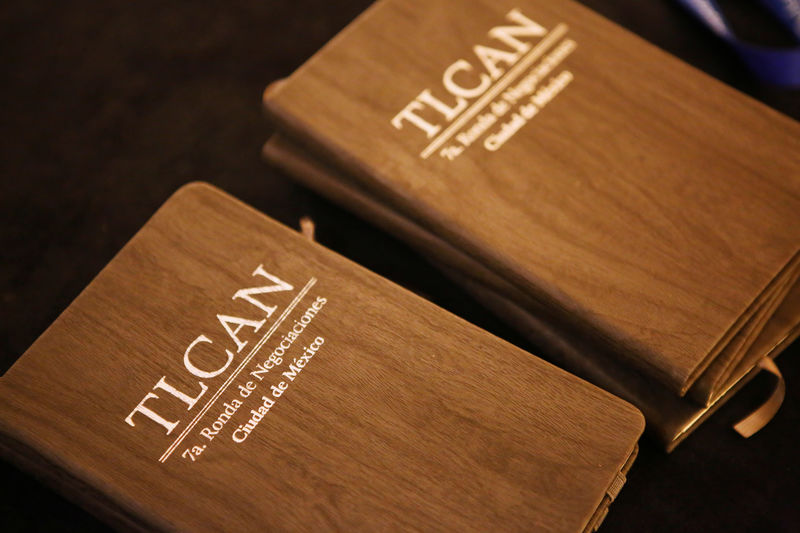By Dave Graham and Lesley Wroughton
MEXICO CITY (Reuters) - Mexico's economy minister met with top U.S. trade officials on Wednesday midway through the latest push to renegotiate the NAFTA trade deal, as concerns about steel added to trade tensions between the two countries.
Economy Minister Ildefonso Guajardo met U.S. Commerce Secretary Wilbur Ross and U.S. Trade Representative Robert Lighthizer during a hastily arranged visit to Washington as U.S., Mexican and Canadian officials held a seventh round of negotiations to rework the North American Free Trade Agreement.
In a statement, Mexico's economy ministry said Guajardo had discussed possible U.S. steel import tariffs with Ross, as well as bilateral agreements over tomatoes and sugar, which have been renegotiated periodically.
Guajardo also met with Lighthizer to discuss the agenda of the ministerial meeting on March 5 at the conclusion of the latest NAFTA talks in Mexico City, his ministry said.
U.S. President Donald Trump is considering imposing steel and aluminum tariffs on imports from China and elsewhere following a probe looking at whether imports of the metals threatened U.S. national security.
Among the options before Trump is a tariff of at least 24 percent on steel products from all countries. However, Trump could decide to exempt some countries from any measures, including its NAFTA trading partners and has indicated he might exempt Canada.
A Mexican official said the Ross meeting would address Mexican concerns over trade in steel and tomatoes, noting that Mexico would retaliate against steel tariffs.
Ross has said he would not be surprised to see countries challenge any steel tariffs at the World Trade Organization.
There are concerns that stiff U.S. tariffs could raise global steel prices, which would impact Mexico. While Mexico is a large steel importer, it also exported approximately 4.5 million tonnes in 2016.
'HARD TO ACHIEVE'
Meanwhile in Mexico City, negotiators discussed the broad outlines of so-called rules of origin, which would have a big impact on the automotive industry.
Talks were hampered by the absence of the chief U.S. negotiator, Jason Bernstein, who was unexpectedly called to Washington on Tuesday for consultations and is unlikely to return to Mexico.
The possible delay in tackling the matter underlines the slow progress of the talks, which are supposed to wrap up by early April, but look set to drag on for longer.
The current round of talks will also focus on closing chapters related to digital trade, telecommunications, technical barriers to trade, good regulatory practices, and sanitary and phytosanitary measures, according to an official with knowledge of the talks.
Steve Verheul, Canada's chief negotiator in the NAFTA talks, reported some advances in Mexico City.
"We're making reasonably good progress so far," he told journalists without elaborating.
NAFTA talks have crawled along for the past six months, and Trump has threatened to walk away from the $1.2 trillion treaty unless major changes are made to benefit American interests.
